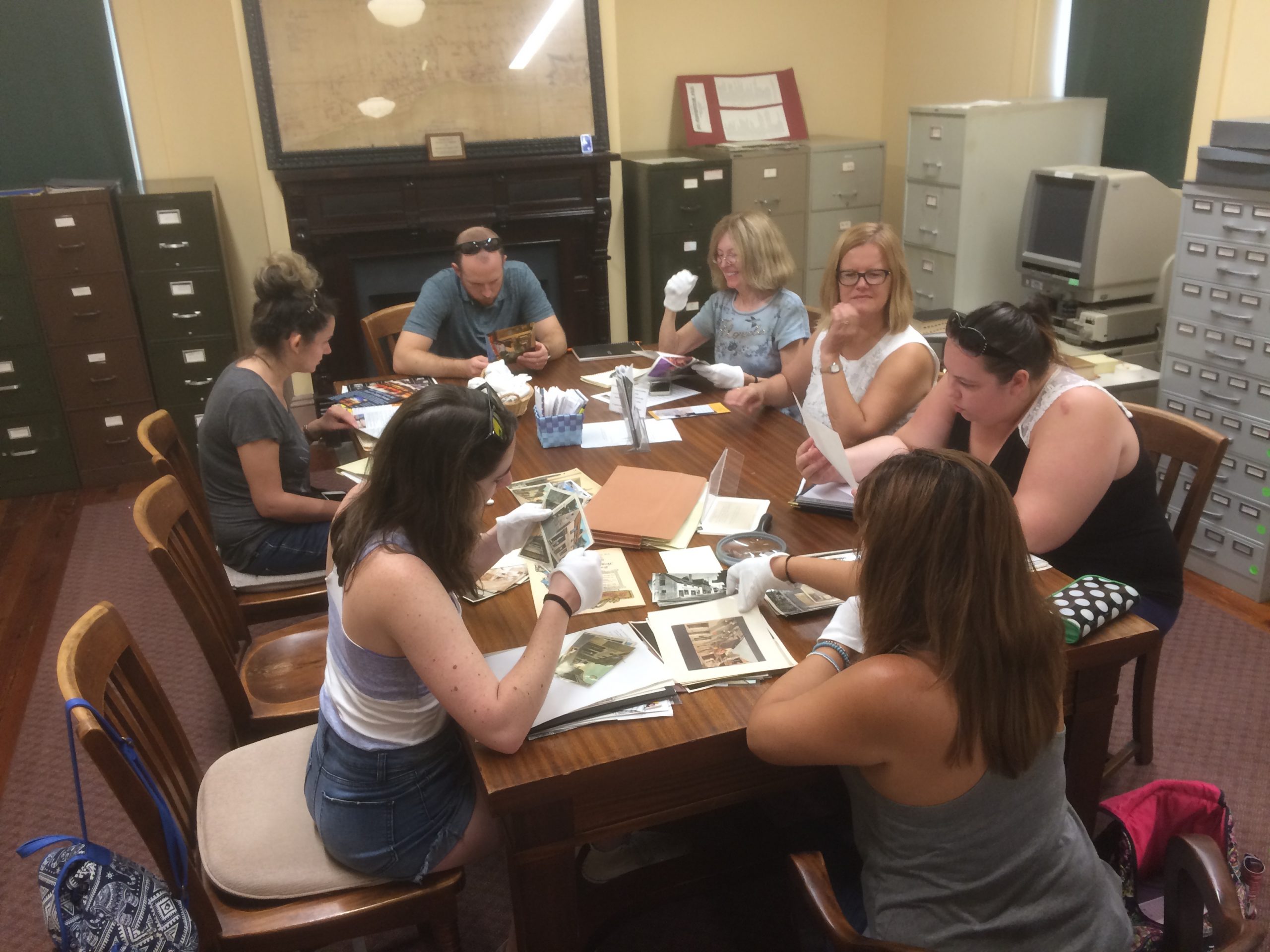
Courses
Summer 2024 Offerings
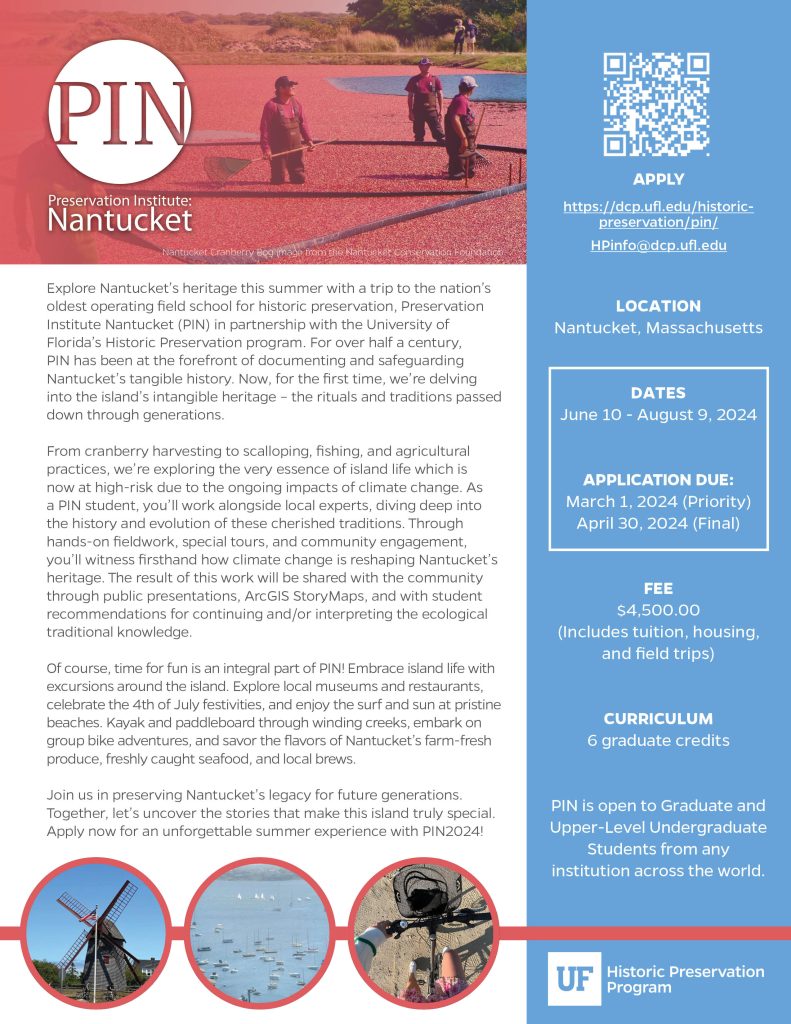

Fall 2024 Offerings
DCP 4000 is our Undergraduate Introductory class. All other classes are Graduate level.
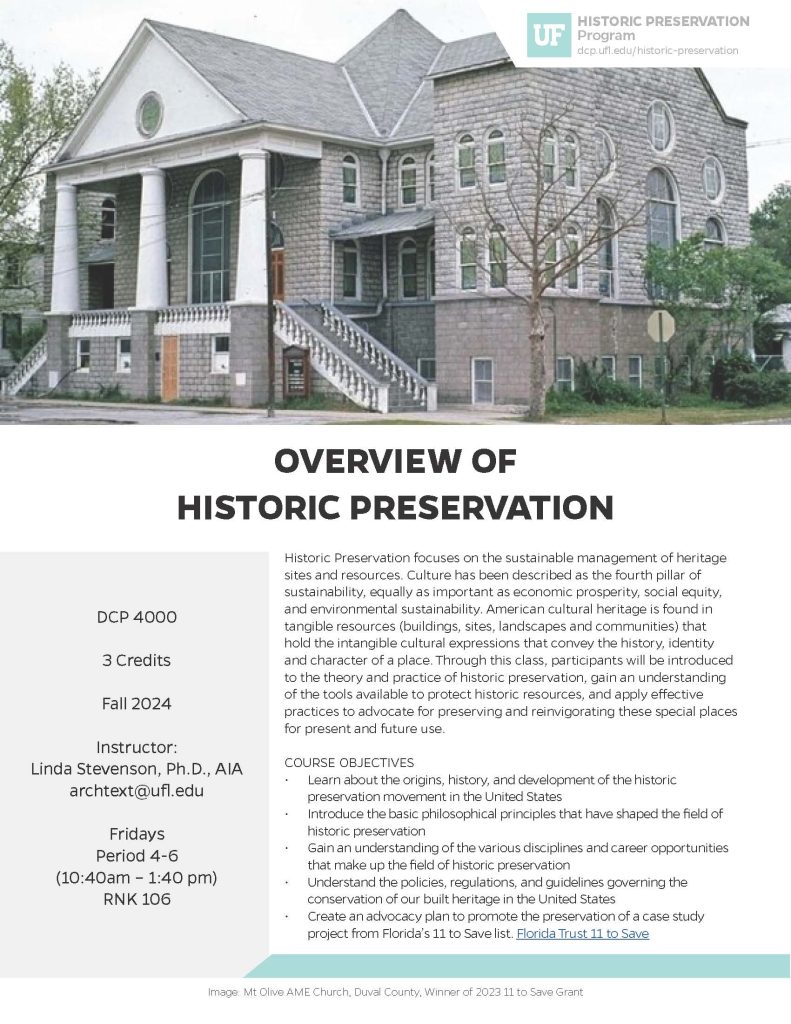

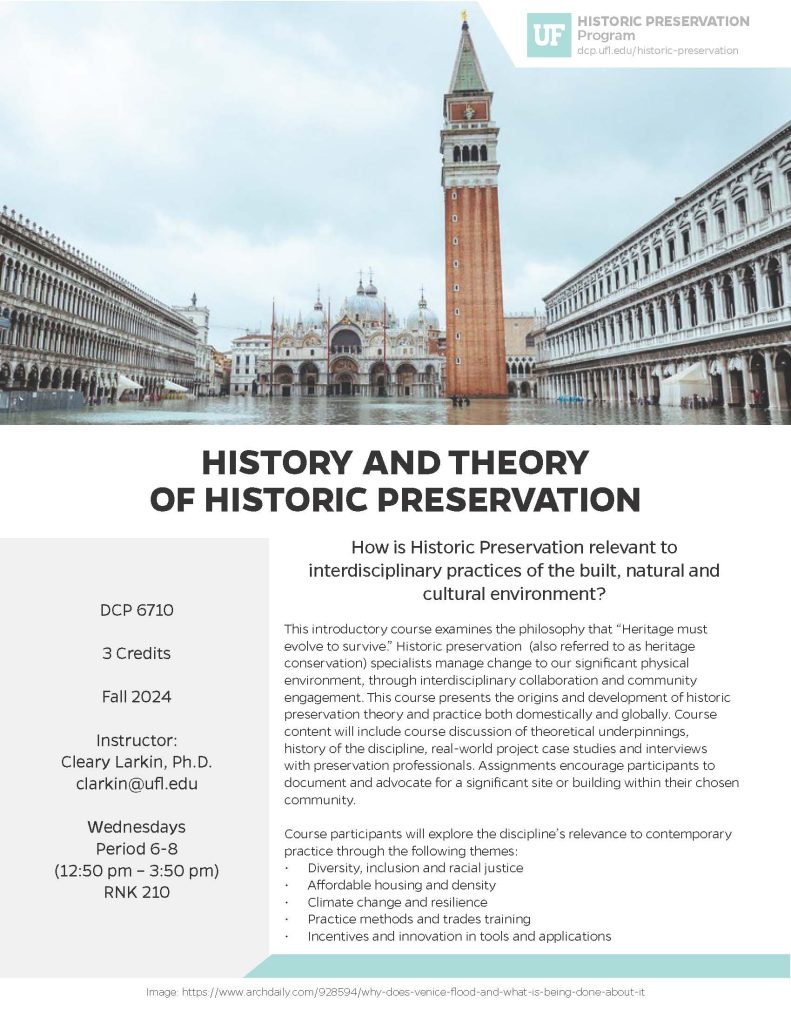
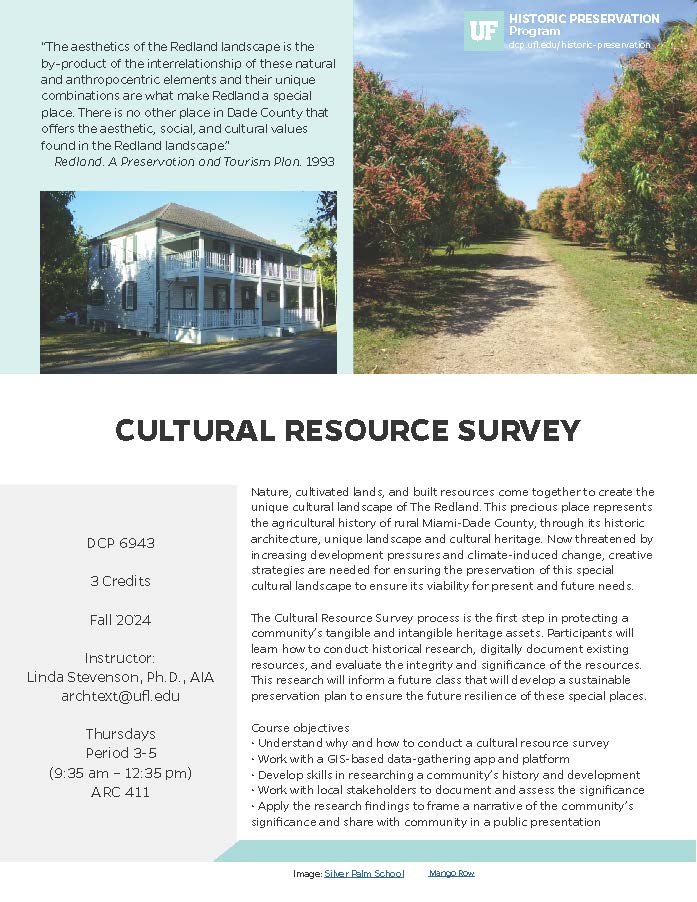
- DCP 4000 Overview of Historic Preservation
- DCP 6710 History & Theory of Historic Preservation
- DCP 6711 Built Heritage: History and Materials Conservation
- DCP6714 Built Heritage Documentation
- DCP 6716 Cultural Resource Management
- DCP 6730 Preservation Policy
- DCP 6931 Special Topics: Design & Communication
- DCP 6943 Cultural Resource Survey
- Preservation Institute Nantucket
- Course Syllabi
DCP 4000 Overview of Historic Preservation (Undergraduate Course)
Fall Semester (3.0 credits)
Instructor: Linda Stevenson, Ph.D.
Description:
Overview of historic preservation and its relationship to historic communities. The course covers terminology, theory, legal, design, social issues and community assessments. Students learn from practitioners and explore real-world preservation advocacy projects. Dissemination includes graphic, oral and written methods.
Prereq: Junior standing or higher.
DCP 6710 History & Theory of Historic Preservation
Fall Semester (3.0 credits)
Instructor: Cleary Larkin, Ph.D.
Description:
The Introductory course for the Master’s program explores historic preservation polices, programs and incentives at the global, national, state, and local levels. Theoretical concepts and frameworks are understood as context for the evolution of preservation practice and how we view, protect, and preserve historic interiors, structures, sites, districts, and landscapes. Students undertake real-world research to expand and evolve the existing narratives around historic resources. Dissemination includes graphic, oral and written methods.
DCP 6711 Built Heritage: History and Materials Conservation
Fall or Spring Semester (3.0 credits)
Instructor: Linda Stevenson, Ph.D.
Description:
Historical developments in American cultural heritage through the study of buildings, sites, and figures. Focus on building technology and materials, including work in St. Augustine’s Materials Conservation Lab, site visits to explore historic building materials, and conditions assessments and recommendations. Dissemination includes graphic, oral and written methods.
DCP6714 Built Heritage Documentation
Fall or Spring Semester (3.0 credits)
Instructor: Linda Stevenson, Ph.D.
Description:
Documentation of historic resources using fieldwork methodology, research with archival, primary and secondary sources, stakeholder interviews and history. Hand and digital technologies are utilized to physically document a resource and create existing drawings or models. Dissemination includes graphic, oral and written methods.
DCP 6716 Cultural Resource Management
Fall or Spring Semester (3.0 credits)
Instructor: Linda Stevenson, Ph.D.
Description:
This real-world project-based course introduces multidisciplinary approaches for the identification, documentation, preservation, and interpretation of significant heritage sites through the preparation of a Historic Structure Report, a Conservation Management Plan, a Cultural Landscapes Report, or a National Register Nomination. Dissemination includes graphic, oral and written methods.
DCP 6730 Preservation Policy
Spring Semester (3.0 credits)
Instructor: Cleary Larkin, Ph.D.
Description:
Exploration of historic preservation polices, programs and incentives at the global, national, state, and local levels through real-world case studies of government preservation through the National Historic Preservation Act, the Department of Interior, State Historic Preservation Offices, and regional, county and municipal offices. Non-profit advocacy, tax credit and other fiscal incentives, and heritage-climate policies are discussed with practitioners from across the nation. Dissemination includes graphic, oral and written methods.
DCP 6931 Special Topics: Design & Communication (Elective Courses)
Fall and Spring Semester (3.0 credits)
Instructor: Clarissa Carr, Ph.D.
Description:
Rotating topics include Heritage Design Communications and Interpretive and Graphic Design for Heritage Sites. Students learn software techniques for the graphic display and dissemination of real-world heritage research projects. Dissemination includes graphic, oral and written methods.
DCP 6943 Cultural Resource Survey
Fall or Spring Semester (3.0 credits)
Instructor: Linda Stevenson, Ph.D.
Description:
This community project-based course focuses on the inventory and assessment of a historic neighborhood or district and its built and intangible heritage using current policies and best practices for cultural resource surveys. Students learn digital technologies for documentation and mapping, and working with local, state, and federal standards for survey reporting. Dissemination includes graphic, oral and written methods, as well as geospatial documentation.
DCP 6701 World Heritage Research and Stewardship
DCP 6718 Current Topics in Historic Preservation
These two courses are taken together and are only offered at the Summer Preservation Institute Nantucket. (6.0 credits)
Instructor: Cleary Larkin, Ph.D.
Description:
Officially founded in 1972, PIN is America’s oldest, continually operating applied learning and research program (“field school”) for historic preservation. The mission of PIN is to help prepare the next generation of historic preservation leaders while documenting, researching, and conserving the Island community’s cultural resources. The summer program introduces students to the historic coastal community of Nantucket, designated a U.S. National Historic Landmark District in 1966 based primarily on its leading role in the global whaling industry from the late 18th through mid-19th centuries. Projects change every summer but recent projects have included documentation and assessment of cultural and historical resources and landscapes, assessment of historic materials conditions, vulnerability assessment of cultural heritage and landscapes, exploration of strategies for adaptation and mitigation of the island’s built heritage to enhance resilience. Students will have opportunities to learn from multi-disciplinary practitioners and subject matter experts, as well as work with local policy, governmental, advocacy, arts and conservation organizations. PIN’s legacy acknowledges multi-disciplinary scholarship as central to the discipline of Historic Preservation.
Objectives:
- Gain an understanding of the history and current condition of the island and Town of Nantucket;
- Explore the impacts of population, tourism, sea level rise, and climate change on heritage resources;
- Examine policies governing the management of heritage resources and historic coastal communities being impacted by sea level rise and climate change;
- Learn and employ best practices for undertaking an integrated approach to cultural resource surveys, conditions assessments, and vulnerability assessments;
- Establish a preservation approach that considers policy, design, conservation, education and interpretation as solutions for a resilient future.
- Consider and implement strategies for engaging stakeholders and the community of Nantucket through written, graphic and oral presentation skills.